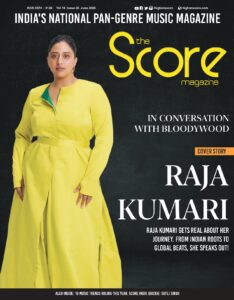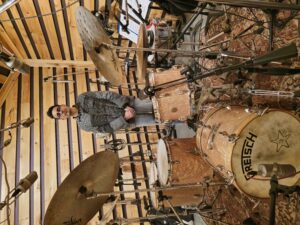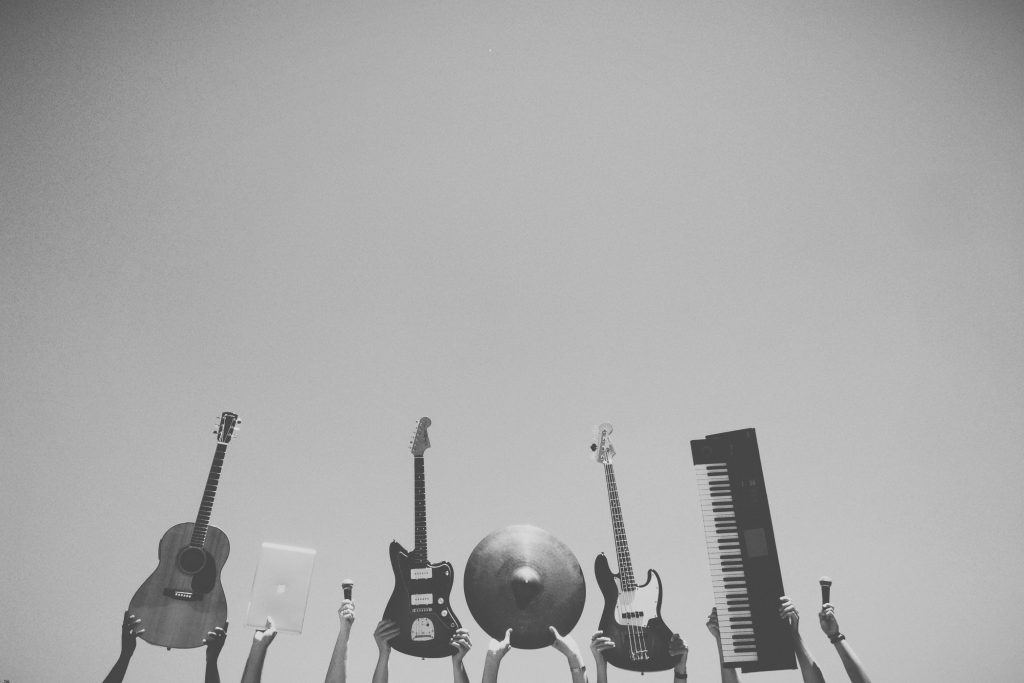“Great things are done by a series of small things brought together.” – Vincent Van Gogh
That is basically every good concert you’ve ever attended or will ever attend. A lot of people come together to put up something that just one or two couldn’t have managed to. Unity isn’t a very complex idea and neither is teamwork. But when you talk about teamwork, the music industry as a whole probably isn’t the first thing that comes to your mind. Because when you talk about ‘teamwork’, it’s usually associated with sports or teams in a corporate setup and so on and so forth. But how many times have we gone home from a concert and thought of how exactly did they manage to pull it off? We’d probably credit the band(s) for their stellar performances or how the sound and light setup was great. Rarely do we credit the whole team for the event. The fact of the matter is that the event wouldn’t have been half as great as it was if the two main players in this scenario, i.e. the Artists and the Promoters didn’t work well as a team. A successful gig without the two getting along and coming together as a team is a rarity.
The music industry, as a whole, isn’t small. But it isn’t one of the largest either. And in a country like ours, the demographics change to a great extent. It changes further when you talk about the Independent music scene. It is a fairly small scene. There are only a few bands/artists and fewer people to program gigs for them, at least when compared to the scene in most of the West. So it is very important that the promoters and the bands get along. At the same time, it is unrealistic to expect so many people with so many different sets of ideas to get along all the time.
The Artist and the promoter relationship isn’t a simple one by any means, especially when one or both the parties are new to the business. In my experience over the last half a decade, I’ve come to realize that one too many people artists complain about the promoters and vice versa. And all this could be for various reasons. Some may be valid and some, not so much. Often, it is because one does not understand or empathize with the other. Other times, it’s because one does not want to be willing to be a little understanding. Bluntly put, being a douche! And all this may have a little effect on the individuals. But it can greatly impact the final product. I.e. the gig! The question, though, is; can it be avoided? Can it be worked around? The answer is a resounding YES! How? Maybe doing a few things and avoiding some could help.
- Respect each other: It’s simple. You respect people and they respect you. It’s the most basic thing expected out of anyone. But somehow, a lot of promoters, new and old take artists for granted. If you’re one of them, it’s time to change your attitude. Nobody wants to work with someone who cannot respect his subordinates, let alone any self-respecting musicians. There are also some artists who can be really difficult to work with because of their unrealistic demands and high-handedness. So a bit of courtesy and professionalism while dealing with people you work with will go a long way!
- Production: Communicate with each other about the band’s requirements as far as the sound setup is concerned. It will not always be possible to meet every requirement. At times when the promoters can’t provide the artists with the said gear, something equivalent instead could be suggested. At times, one or the other or both the sides will have to reach a consensus by compromising on some requirements.
- Don’t ask the artist to pay to play: This is a very weird concept as it is, but it is even more absurd when you want bands to pay for local club shows. It’s as if you make the production company pay for the sounds and lights they provide you with. Why? For ‘exposure’. Because you’re exposing their sound and light setup to the audience. Even if a venue has their ‘regular crowd’, you’re buying a service here. And you can’t make the service provider pay for providing the service. Where else do you see this happen, but in the showbiz?
- Promotions: You’ll often come across promoters/venues who don’t promote the show as much as they should. It’s solely expected out of the artists to promote the event and get the crowd. Sometimes, it’s vice versa. This is one of the responsibilities that ought to be shared by both, the artist(s) and the promoter(s). That’s the only way you can have a wider reach and in turn, have a larger audience at the gig.
- Watch the Clock: Delays and changes in the schedule are very common at gigs. Avoid that. Promoters need to give the time slots to the venue, production team and the artists well in advance. Have buffer time in case of minor delays. The artists need to show up on time. There cannot be any excuses here.
- Sound-check / Line-check: Promoters need to make sure that each one of the bands has ample time to do a proper line check with at least a couple of bands getting to check their sounds before the show starts. While as artists, it’s your responsibility to do a quick and tight sound-check. Doing silly things instead of finishing your sound-check will only frustrate the technicians, promoters and even the other artists waiting for their turn to do their sound-check.
- Don’t leave the venue after your performance: A lot of performers tend to forget that there are other performers who were there to watch them perform. Avoid that. Stay back and watch the other artists perform. At the very least, it shows that you respect your peers and support them. It puts you in the good books in your music community.
- Have a written contract and respect the terms & conditions: The biggest mistake most promoters and artists do is not have a written contract. And that’s a wrong and a very risky way to conduct business. Make sure that you have all the terms & conditions written down and signed by the promoter and the representative of the band. This is very important, for when one or the other goes back on his word, you can always contest that. So make sure to have a contract for the event and honour it.
The aforementioned are just some things that promoters and artists can do to have a smooth working relationship. With the passage of time, with experience, you’ll realize that there is much more you can do to have a good working relationship with one another and you’ll find a tad bit easier to move forward in the right direction. When the promoters and artists get along, it has a positive impact on the whole scene. So support each other, stand by each other through thick and thin, be a little accommodating and you’ll realize how important a role you played in the making sure that there’s good live music for everyone. Everyone wins. Then be it you (promoters and artists) and your supporters or your fans!
Remember, none of us is as smart or as strong or as efficient as ALL of us.








